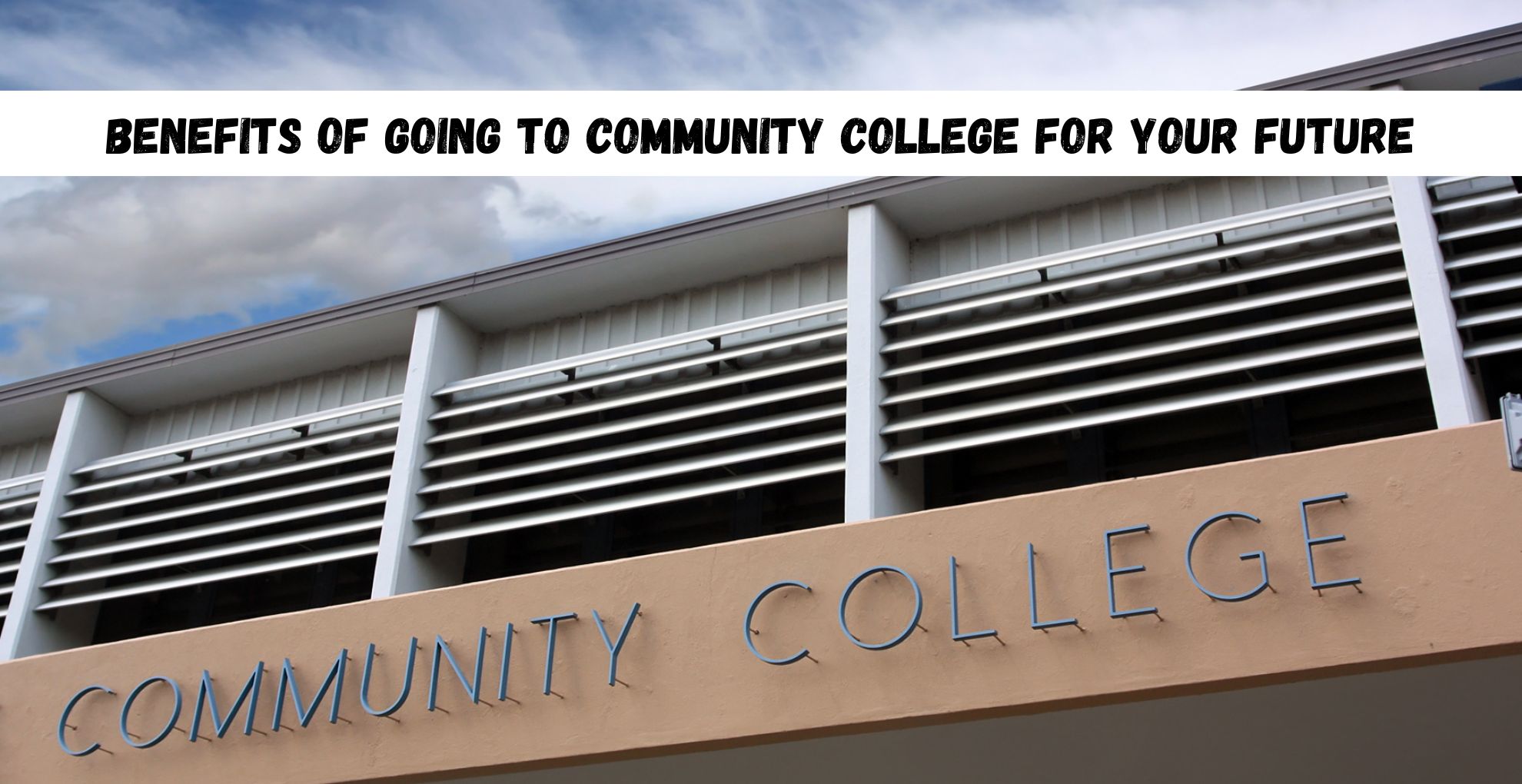For decades, the traditional route of attending a four-year university immediately after high school has been seen as the “golden ticket” to success. But as the cost of higher education continues to climb and life circumstances vary, more students are starting to look at community colleges as a smart, practical alternative. Whether you’re fresh out of high school, returning to education after a break, or navigating financial challenges, community college offers a flexible and cost-effective solution that can still lead to a bright future.
In this article, we’ll explore the compelling benefits of choosing a community college and how it might be the right path for your academic and professional journey.

Lower Costs, Less Debt
Affordable tuition, fewer expenses
One of the most well-known advantages of community college is its affordability. According to the College Board, annual tuition and fees at a community college cost approximately one-third of what in-state students pay at public four-year universities. This difference can save students thousands of dollars per year.
But the savings don’t stop at tuition. Many students live at home while attending a local community college, which means they avoid room and board costs, campus meal plans, and dorm-related expenses. Plus, textbooks and campus fees often cost less at two-year colleges.
Tip for students:
Apply for federal aid through the FAFSA®, even if you’re attending community college. You may qualify for grants or scholarships that cover most or all of your costs, sometimes leaving you with no student debt at all.
Greater Flexibility for Real-Life Needs
Class schedules that work for you
Unlike many four-year institutions that follow a rigid semester schedule, community colleges are known for offering flexible class formats. Whether you’re working part-time, caring for family, or juggling other responsibilities, these schools typically offer:
- Evening or weekend classes
- Online or hybrid courses
- Accelerated terms and year-round options
This flexibility allows students to build schedules around their lives, making it easier to manage work, childcare, or other obligations.
Real-life example:
Many community college students are adult learners returning to school after years in the workforce. One student, R.J. Hunt, chose a community college during the pandemic and found it fit his needs better than a traditional school could.
A Pathway to a Four-Year Degree
Transfer opportunities to continue your education
If your long-term goal is to earn a bachelor’s degree, community college can still be your first step. Most community colleges have formal transfer agreements—also known as articulation agreements—with nearby universities. These allow you to:
- Transfer credits smoothly
- Save two years of higher university tuition
- Start your junior year at a four-year school
Just make sure you meet specific transfer requirements, which can vary by institution and major.
Tip:
Meet with a transfer counselor early in your community college experience to map out your classes and ensure they align with your target university’s requirements.

Career-Ready Training and Technical Programs
Not every student needs or wants a bachelor’s degree
Community colleges excel in providing practical, job-focused education in fields that don’t always require a four-year degree. Programs such as:
- Nursing
- Automotive repair
- Culinary arts
- Welding
- Fire science
…are just a few of the vocational and technical programs available.
These courses often include hands-on experience and strong ties to local employers, giving students the skills they need to step directly into the workforce.
Bonus:
Some community colleges even offer bachelor’s degrees in high-demand fields like healthcare, business, and information technology, usually at a fraction of the cost of traditional universities.
Smaller Class Sizes, Stronger Support
Personalized attention that boosts learning
Unlike large lecture halls with hundreds of students, community college classrooms typically hold 20 to 30 students. This smaller setting fosters a more supportive environment, where instructors can give more personalized attention.
Students also benefit from:
- Easier access to professors
- Opportunities for meaningful peer interaction
- Stronger academic support services like tutoring and mentoring
For students who struggled in high school or are returning to education after time away, this kind of environment can make a significant difference in confidence and performance.
Staying Close to Home
Convenience and comfort
For many students, staying close to family and familiar surroundings is a top priority—whether for emotional support, financial reasons, or simply convenience.
Community colleges are usually located within commuting distance of most residential areas, allowing students to:
- Save on housing
- Maintain part-time or full-time jobs
- Stay connected with family and community obligations
This is especially important for students with dependents, transportation challenges, or a strong desire to stay rooted in their hometowns.
Inclusive and Diverse Student Community
Education that reflects real life
The average age of a community college student is 27, and nearly half are over the age of 22. You’ll likely find yourself studying alongside recent high school grads, working professionals, parents, and retirees. This diverse learning environment brings a wide range of experiences, perspectives, and life stories into the classroom.
Programs like dual enrollment even allow high school students to take college-level courses early, giving them a head start.
Why it matters:
A more inclusive and varied student body often fosters a more welcoming and collaborative atmosphere, which can benefit everyone, both personally and academically.

FAQs: What Students Often Ask About Community College
Is community college easier than a four-year university?
Not necessarily. The coursework can be just as challenging, but the environment often provides more support and flexibility, making it feel more manageable for some students.
Will my credits transfer to a university?
In most cases, yes—but you need to plan. Use your community college’s advising resources to understand transfer agreements and required courses for your intended major.
Can I get a degree at a community college?
Absolutely. Many students earn associate degrees, certificates, or even applied bachelor’s degrees in high-demand fields.
Do employers take community college seriously?
Yes. What matters most is your skills, work ethic, and professional experience. Many employers value the practical training that community college provides, especially in technical and healthcare fields.
Can I still have a “college experience” at a community college?
While the traditional dorm life and football games may not be part of the package, community colleges often have student clubs, events, and campus life. You may need to make more of an effort to get involved, but the opportunities are there.
Final Thoughts
Choosing community college isn’t “settling”—it’s a strategic decision that offers flexibility, affordability, and opportunity. Whether you’re trying to save money, test the waters of higher education, or gain workforce-ready skills, community college can offer a powerful launchpad toward your personal and academic goals.
By starting with community college, you open the door to a variety of pathways without the burden of overwhelming debt or rigid expectations. And the best part? You get to define what success looks like on your terms.




